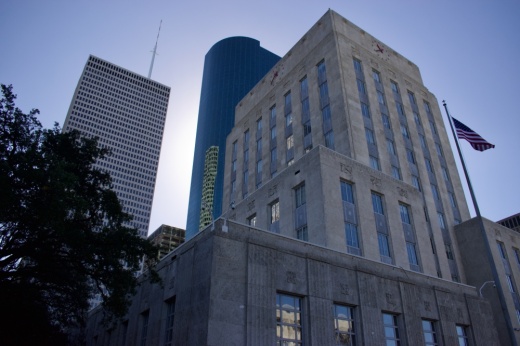Officials with the Union Pacific Railroad are highlighting a newly revealed state assessment in Houston that found "no cancer concerns" in some samplings of contaminated soil at a Union Pacific site near the Fifth Ward.
However, officials with the Houston Health Department said the state assessment was too small and generic to be applicable to the concerns the community is facing. Meanwhile, Union Pacific officials said more comprehensive soil testing at the site will soon begin.
The backstory
The site in question is a former Houston Wood Preserving Works creosote treatment facility, which Union Pacific acquired in the 1990s. It can be found at 4910 Liberty Road, Houston.
City of Houston officials said there are links to cancer-causing contaminants in the soil and groundwater of more than 100 homes in the Fifth Ward area. City officials have threatened to sue Union Pacific over the site, and the Texas Department of State Health Services has previously found the rate of acute lymphoblastic leukemia cancer in the surrounding community was nearly five times the expected rate.
In 2022, officials with the Houston Health Department announced they found dioxin in a surface soil sample, which was sent to the DSHS for evaluation. According to the U.S. Environmental Protection Agency, dioxins can be linked to types of cancers, reproductive and developmental issues, and damage to the immune system, and they can also interfere with hormones.
Union Pacific and EPA officials have since announced plans to team up on more comprehensive soil testing as UP carries out other remediation work at the site.
Meanwhile, Houston Mayor Sylvester Turner announced a new program in July to help fund relocation costs for families looking to leave the area.
What's new
After dioxin was found in a surface sample, 47 soil samples were sent to the DSHS for more testing. The state analysis had two specific goals:
- Determine if residents may be harmed by exposure to chemicals in the soil.
- Determine if any actions are needed to reduce potentially harmful exposures.
However, state officials also noted limitations on their assessment, including limitations on where samples were taken from and limitations in estimating how long an individual may have been exposed to the contaminants. The state assessment strictly commented on the soil samples and did not touch on the broader remediation effort underway at the site.
What happened
Although the state sent its assessment to Houston in January, officials with Union Pacific said it was not initially shared with the public.
Union Pacific released a statement Aug. 31 highlighting the "no cancer concerns" finding as an important follow-up to the concerns raised by Houston officials after the 2022 surface sampling. However, the statement also emphasized the importance of more comprehensive testing.
"The state’s review underscores the limitations of the city’s study," Union Pacific officials said in the statement. "Union Pacific cares about the community and remains committed to performing more thorough soil sampling and completing a site-specific risk assessment study to determine the path forward."
What Houston officials are saying
Following Union Pacific's news release, the Houston Health Department released its own statement taking issue with how Union Pacific framed the state's conclusions, arguing the claim of "no cancer concerns" was inappropriate and offensive to residents.
"The state did a small assessment using generic equations to circulate the probability of developing cancer from exposure based on the average concentration of dioxin in the surface soil," city officials wrote in the statement. "The type of assessment done by the state health department is not applicable to the situation the community is dealing with around [Union Pacific] because there is absolutely no mechanism in the assessment to account for the fact that the community already has people diagnosed with cancer and continuing to die from cancer."
Community Impact has reached out to the Houston Health Department for additional comments on the state's assessment and how city officials responded to it when it was initially received in January.
What's next
A spokesperson for Union Pacific said the company remains committed to continuing its remediation efforts and soil testing under the guidance of the EPA. The more comprehensive testing efforts have not begun yet, but are slated to begin in a couple of weeks. The process is meant to "identify the source, extent and health risks associated with any potentially harmful contaminants" at the site, according to the company's Aug. 31 release.
Union Pacific officials also announced Sept. 1 they would begin seeking property owner permission at more than 300 residences in the Fifth Ward to sample soil in their yards. Complete test results will be made available to the public once the EPA approves and validates the results.





